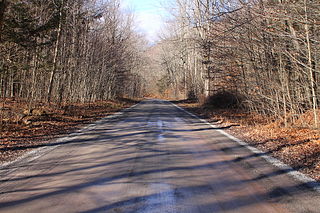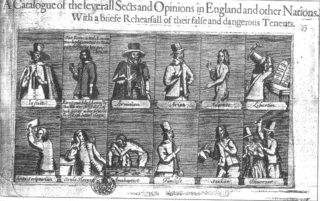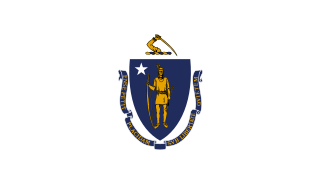 W
WAn insult is an expression or statement which is disrespectful or scornful. Insults may be intentional or accidental. An insult may be factual, but at the same time pejorative, such as the word "inbred".
 W
WAn adulterant is a substance found within other substances such as food, cosmetics, pharmaceuticals, fuel or other chemicals that compromises the safety or effectiveness of said substance.
 W
WBeauty Beggar is a derogatory name for beauty bloggers or beauty YouTubers who capitalize their fame to promote cosmetics so as to obtain sponsorship, in forms of testers or money, from cosmetics companies. It is a Hong Kong internet slang that originated from the discussion on Instagram and The Golden Forum
 W
WA blood sport or bloodsport is a category of sport or entertainment that involves bloodshed. Common examples of the former include combat sports such as cockfighting and dog fighting and some forms of hunting and fishing. Activities characterized as blood sports, but involving only human participants, include the Ancient Roman gladiatorial games.
 W
WThe boondocks is an American expression from the Tagalog (Filipino) word bundók ("mountain"). It originally referred to a remote rural area, but now, is often applied to an out-of-the-way area considered backward and unsophisticated by city-folk. It can also refer to a mountain.
 W
WA cigarette is a narrow cylinder containing burnable material, typically tobacco, that is rolled into thin paper for smoking. Across all forms of tobacco consumption both smoking and nonsmoking cigarettes are the most purchased and consumed tobacco item, creating a multibillion-dollar industry. Most commercially available cigarettes are manufactured the same way using tobacco that is treated with butterfat and sugar to mask the bitter taste of nicotine. Tobacco companies also use tobacco that has been freebased or modified to increase the speed of nicotine delivery. Cigarettes also contain tobacco that has been exposed to carbon dioxide to act as a cigarette filler.
 W
WA Chinese home run, also a Chinese homer, Harlem home run, Polo home run, or Pekinese poke, is a derogatory and archaic baseball term for a hit that just barely clears the outfield fence at its closest distance to home plate. It is essentially the shortest home run possible in the ballpark in question, particularly if the park has an atypically short fence to begin with. The term was most commonly used in reference to home runs hit along the right field foul line at the Polo Grounds, home of the New York Giants, where that distance was short even by contemporary standards. When the Giants moved to San Francisco in 1958, the Los Angeles Coliseum, temporary home of the newly relocated Los Angeles Dodgers, gained the same reputation for four seasons until the team took up residence in its permanent home at Dodger Stadium in 1962. Following two seasons of use by the expansion New York Mets in the early 1960s, the Polo Grounds were demolished, and the term gradually dropped out of use.
 W
WChocolate box art originally referred literally to decorations on chocolate boxes. Over the years, however, the terminology has changed; it is now applied broadly as an often pejorative term to describe paintings and designs that are overly idealistic and sentimental.
 W
WClickbait is a text or a thumbnail link that is designed to attract attention and to entice users to follow that link and read, view, or listen to the linked piece of online content, being typically deceptive, sensationalized, or otherwise misleading. A "teaser" aims to exploit the "curiosity gap", providing just enough information to make readers of news websites curious, but not enough to satisfy their curiosity without clicking through to the linked content. Click-bait headlines add an element of dishonesty, using enticements that do not accurately reflect the content being delivered. The "-bait" part of the term makes an analogy with fishing, where a hook is disguised by an enticement (bait), presenting the impression to the fish that it is a desirable thing to swallow.
 W
WA conspiracy theory is an explanation for an event or situation that invokes a conspiracy by sinister and powerful groups, often political in motivation, when other explanations are more probable. The term has a negative connotation, implying that the appeal to a conspiracy is based on prejudice or insufficient evidence. A conspiracy theory is not the same as a conspiracy; instead, it refers to a hypothesized conspiracy with specific characteristics, such as an opposition to the mainstream consensus among those people who are qualified to evaluate its accuracy.
 W
WA copyright troll is a party that enforces copyrights it owns for purposes of making money through strategic litigation, in a manner considered unduly aggressive or opportunistic, sometimes while without producing or licensing the works it owns for paid distribution. Critics object to the activity because they believe it does not encourage the production of creative works, but instead makes money through the inequities and unintended consequences of high statutory damages provisions in copyright laws intended to encourage creation of such works.
 W
WCream skimming is a pejorative conceptual metaphor used to refer to the perceived business practice of a company providing a product or a service to only the high-value or low-cost customers of that product or service, while disregarding clients that are less profitable for the company.
 W
WIn English slang, a Croydon facelift is a particular hairstyle worn by some women. The hair is pulled back tightly and tied in a bun or ponytail at the back. The supposed result is that the skin of the forehead and face are pulled up and back, producing the effects of a facelift.
 W
WIn modern English, a cult is a social group that is defined by its unusual religious, spiritual, or philosophical beliefs, or by its common interest in a particular personality, object, or goal. This sense of the term is controversial, having divergent definitions both in popular culture and academia, and has also been an ongoing source of contention among scholars across several fields of study. The word "cult" is usually considered pejorative.
 W
W"Death panel" is a political term that originated during the 2009 debate about federal health care legislation to cover the uninsured in the United States. Sarah Palin, former Republican Governor of Alaska and Vice Presidential Candidate in 2008, coined the term when she charged that proposed legislation would create a "death panel" of bureaucrats who would carry out triage, i.e. decide whether Americans—such as her elderly parents, or children with Down syndrome—were "worthy of medical care". Palin's claim has been referred to as the "death panel myth", as nothing in any proposed legislation would have led to individuals being judged to see if they were worthy of health care.
 W
WDisease mongering is a pejorative term for the practice of widening the diagnostic boundaries of illnesses and aggressively promoting their public awareness in order to expand the markets for treatment.
 W
WThe dump months are what the film community calls the two periods of the year when there are lowered commercial and critical expectations for most new releases from American filmmakers and distributors. Domestic audiences during these periods are smaller than the rest of the year, so no tentpole movies are released. January and February are usually most commonly described this way, with August and September sometimes included. Releases during those times primarily include films that would have been released at other times of year had they done better at test screenings, films with less prominent stars, genre films, movies that cannot be easily marketed and films intended for a teenage audience, which has fewer entertainment options outside the home.
 W
WFlyover country and flyover states are American phrases describing the parts of the United States between the East and the West Coasts. The origins of the phrases and the attitudes of their supposed users are a source of debate in American culture; the terms are often regarded as pejoratives, but are sometimes "reclaimed" and used defensively. The terms refer to the interior regions of the country passed over during transcontinental flights, particularly flights between the nation's two most populous urban agglomerations: the Northeastern Megalopolis and Southern California. The term is also sometimes used more broadly to describe flights between all the heavily urbanized megaregions of the United States. The term is often used in reference to the general economic, developmental, cultural, and political differences between the urban coastal and rural central regions of the United States. "Flyover country" thus refers to the part of the country that some Americans—especially urban, wealthier, white-collar Americans—only view by air when traveling and never actually see in person at ground level.
 W
WHeresy is any belief or theory that is strongly at variance with established beliefs or customs, in particular the accepted beliefs of a church or religious organization. The term is usually used in reference to violations of important religious teachings, but is also used of views strongly opposed to any generally accepted ideas. A heretic is a proponent of heresy.
 W
WFlavored fortified wines are inexpensive fortified wines that typically have an alcohol content between 13% and 20% alcohol by volume (ABV). They are made from various fruits with added sugar, artificial flavor and artificial color.
 W
WJiggle television is a term coined by NBC executive Paul Klein to criticize ABC's television production and marketing strategy under Fred Silverman.
 W
WJunk food is unhealthy food that is high in calories from sugar or fat, with little dietary fiber, protein, vitamins, minerals, or other important forms of nutritional value. It is also known as HFSS food.
 W
WA kangaroo court is court that ignores recognized standards of law or justice, carries little or no official standing in the territory within which it resides, and is typically convened ad hoc. A kangaroo court may ignore due process and come to a predetermined conclusion. The term may also apply to a court held by a legitimate judicial authority which intentionally disregards the court's legal or ethical obligations.
 W
WIn suburban communities, McMansion is a pejorative term for a large "mass-produced" dwelling marketed to the upper middle class mainly in the United States. Virginia Savage McAlester, who also gave a first description of the common features which define this building style, coined the more neutral term Millennium Mansion.
 W
WMichael Theodore "Mickey" Mouse is a cartoon character created in 1928 by The Walt Disney Company, who also serves as the brand's mascot. An anthropomorphic mouse who typically wears red shorts, large yellow shoes, and white gloves, Mickey is one of the world's most recognizable fictional characters.
 W
WMilo tin is a Malaysian pejorative used to describe unsafe or cheaply made vehicles. It is comparable to the slang term, 'deathtrap'.
 W
WName-calling is a form of argument in which insulting or demeaning labels are directed at an individual or group. This phenomenon is studied by a variety of academic disciplines such as anthropology, child psychology, and political science. It is also studied by rhetoricians, and a variety of other disciplines.
 W
WA pastiche is a work of visual art, literature, theatre, music, or architecture that imitates the style or character of the work of one or more other artists. Unlike parody, pastiche celebrates, rather than mocks, the work it imitates.
 W
WPink slime is a meat by-product used as a food additive to ground beef and beef-based processed meats, as a filler, or to reduce the overall fat content of ground beef. As part of the production process, heat and centrifuges remove the fat from the meat in beef trimmings. The resulting paste, without the fat, is exposed to ammonia gas or citric acid to kill bacteria. In 2001, the United States Department of Agriculture (USDA) approved the product for limited human consumption. The product, when prepared using ammonia gas, is banned for human consumption in the European Union.
 W
WQuackery, often synonymous with health fraud, is the promotion of fraudulent or ignorant medical practices. A quack is a "fraudulent or ignorant pretender to medical skill" or "a person who pretends, professionally or publicly, to have skill, knowledge, qualification or credentials they do not possess; a charlatan or snake oil salesman". The term quack is a clipped form of the archaic term quacksalver, from Dutch: kwakzalver a "hawker of salve". In the Middle Ages the term quack meant "shouting". The quacksalvers sold their wares on the market shouting in a loud voice.
 W
WRice burner is a pejorative term originally applied to Japanese motorcycles and which later expanded to include Japanese cars or any East Asian-made vehicles. Variations include rice rocket, referring most often to Japanese superbikes, rice machine, rice grinder or simply ricer.
 W
W"Sunday school answer" is a pejorative used within Evangelical Christianity to refer to an answer as being the kind of answer one might give to a child. The phrase derives its name from the concept that certain answers are likely to be an appropriate answer to a question asked in a Sunday school even if one has not heard the question. These answers include Jesus, sin, and the cross.
 W
WMassachusetts, officially the Commonwealth of Massachusetts, is the most populous state in the New England region of the United States. It borders on the Atlantic Ocean to the east, Connecticut to the southwest and Rhode Island to the southeast, New Hampshire to the northeast, Vermont to the northwest, and New York to the west. The capital of Massachusetts is Boston, which is also the most populous city in New England. It is home to the Greater Boston metropolitan area, a region influential upon American history, academia, and industry. Originally dependent on agriculture, fishing and trade, Massachusetts was transformed into a manufacturing center during the Industrial Revolution. During the 20th century, Massachusetts's economy shifted from manufacturing to services. Modern Massachusetts is a global leader in biotechnology, engineering, higher education, finance, and maritime trade.
 W
WA tin foil hat is a hat made from one or more sheets of aluminium foil, or a piece of conventional headgear lined with foil, often worn in the belief or hope that it shields the brain from threats such as electromagnetic fields, mind control, and mind reading. The notion of wearing homemade headgear for such protection has become a popular stereotype and byword for paranoia, persecutory delusions, and belief in pseudoscience and conspiracy theories.